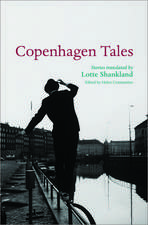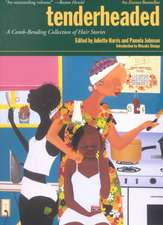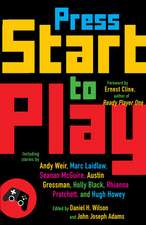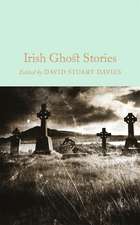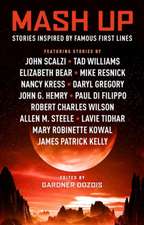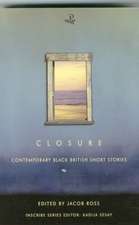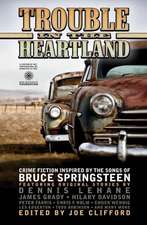Prize Stories: The O. Henry Awards
Editat de Larry Darken Limba Engleză Paperback – 31 iul 2001
FIRST PRIZE
MARY SWAN
The Deep
SECOND PRIZE
DAN CHAON
Big Me
THIRD PRIZE
ALICE MUNRO
Floating Bridge
FRED G. LEEBRON
That Winter
T.CORAGHESSAN BOYLE
The Love of My Life
JOYCE CAROL OATES
The Girl with the Blackened Eye
DAVID SCHICKLER
The Smoker
ANTONYA NELSON
Female Trouble
ELIZABETH GRAVER
The Mourning Door
PICKNEY BENEDICT
Zog-19: A Scientific Romance
RON CARLSON
At the Jim Bridger
LOUISE EDRICH
Revival Road
WILLIAM GAY
The Paperhanger
DALE PECK
Bliss
MURAD KALAM
Bow Down
GEORGE SAUNDERS
Pastoralia
ANDREA BARRETT
Servants of the Map
| Toate formatele și edițiile | Preț | Express |
|---|---|---|
| Paperback (4) | 141.92 lei 22-36 zile | |
| Anchor Books – 31 aug 2000 | 141.92 lei 22-36 zile | |
| Anchor Books – 31 iul 2001 | 143.37 lei 22-36 zile | |
| Anchor Books – 31 aug 1999 | 143.61 lei 22-36 zile | |
| Anchor Books – 31 aug 1997 | 145.01 lei 22-36 zile |
Preț: 143.37 lei
Nou
Puncte Express: 215
Preț estimativ în valută:
27.43€ • 28.72$ • 22.83£
27.43€ • 28.72$ • 22.83£
Carte disponibilă
Livrare economică 10-24 martie
Preluare comenzi: 021 569.72.76
Specificații
ISBN-13: 9780385498784
ISBN-10: 0385498780
Pagini: 464
Dimensiuni: 143 x 216 x 29 mm
Greutate: 0.59 kg
Ediția:2001.
Editura: Anchor Books
ISBN-10: 0385498780
Pagini: 464
Dimensiuni: 143 x 216 x 29 mm
Greutate: 0.59 kg
Ediția:2001.
Editura: Anchor Books
Notă biografică
Larry Dark is the editor of four anthologies, Literary Outtakes, The Literary Ghost, The Literary Lover, and The Literary Traveler. He lives in Montclair, New Jersey. Michael Chabon is the author, most recently, of The Amazing Adventures of Kavalier & Clay. He lives in northern California. Mary Gordon is the author of Final Payments, The Company of Women and most recently the biography Joan of Arc. She is a professor of English at Barnard College. Mona Simpson is the author of Off Keck Road and Anywhere But Here. She is a professor at Bard College.
Extras
FIRST PRIZE
The Deep
by Mary Swan
Introduced by Mary Gordon
Prose fiction is the bastard child of poetry and journalism. If we, arbitrarily perhaps, but perhaps not, name poetry as the mother, and journalism the father, it seems to me that current prose fiction suffers as a child who takes too much nourishment from its father's hand, an insufficient amount from its mother's. But "The Deep" triumphantly insists on fiction's kinship with poetry. Its greatest strength lies in its creation of image and atmosphere: the pen that leaks into the servant's pocket at the news of the mother of the house's death, the identical scars on the legs of the identical twins, the scars not quite identical because in incising the scars, the twins sat with their feet touching and the scars are therefore mirror images. "The Deep" marks the deep strangeness of the project of being alive. It begins with the inherently uncanny phenomenon of twinship: the other self that is simultaneously the self and other. It includes the darkness of family hatred, family coldness. It rescues the past--a particular slice of the past, the frequently limned period of the First World War--from the dead life of a museum piece. It touches on the limitations and frustrations of the existence of privileged young women, and points to their resilience in the face of genteel oppression. At the same time, the story has a strong, clear narrative line, an unlooked-for climax that in retrospect seems inevitable, so perfectly connected is it to all the elements that make up the story. In these few pages, a thick and shapely world is presented, and the author has risked the unfashionable in many bold, sure strokes. I chose this story as first among so many strong others because of its utter originality, its daring to assert the primacy of complexity and mystery, its avoidance of the current appetite for ironic anomie and thinness. It flowers entirely on its own terms, and the terms are rich and strange.
--Mary Gordon
Mary Swan
an excerpt from The Deep
From The Malahat Review
AFTER
Here there are two tall windows, very tall, many-paned, and the gauzy white curtains swirl in the breeze, lift and fall like a breath, like a sigh. There is a faint, sweet smell, like blossoms; perhaps it is spring. The leaves on the trees also lift and sigh, all that can be seen through those windows. Sounds reach us from the street, wheels turning and hard shoes and sometimes a voice raised, calling out something, but they are muffled, all these sounds. Distant. Father told us once about the Queen's funeral, straw laid in the street to mute the sound. It is like that, and we wonder if someone has died.
HOW TO BEGIN
Has it ever happened to you, that you have wakened suddenly from a long, deep sleep, that it takes some time for you to realize who you are, where you are? Familiar objects, even faces become mysterious, remote. You stumble about, trailing the fog of sleep into the waking world, and nothing makes sense. Just a few, fuddled moments, if you're lucky. Until you splash your face with cold water and recognize it again, in the mirror above the basin. Until you drink a cup of tea, breathe fresh air, let routine tasks draw you back. Where do we go, in such a sleep, what is the world that we enter?
It may be France, in 1918.
SURVIVAL SUIT
How to explain it, what it was like? The interview, and then the notice that we were accepted, the official look of it, and then the date for sailing, ten days on. A sudden twinge of panic, of dismay--ten days, such an imaginable length of time. So many things to do, to gather together, the momentum of that carried us for a while. The vaccinations and the endless lists. Blankets and heavy stockings and high boots. Coats, thermos bottles, sewing case, flannel nightgowns. Knife. Two closely written pages listing essential equipment, with a note at the bottom reminding us that it was our patriotic duty to bring as little luggage as possible.
We laughed about that when we went to dine with Miss Reilly, and she told us how envious she was, how she wished she were setting off too. We talked about the brave boys who had given their lives, James, and the friends and brothers of people we knew. And of course we reminisced about our European journey, spoke of the spirit of France, of Belgium, of how much we had learned. That time we stood in the little church of San Maurizio, tears
streaming down our faces, and how no one thought it strange. Miss Reilly gave us each a slim black pen that evening when we left, so that we would remember to write her everything.
The next day, Father took us to lunch. Someone had told him that the crossing was more dangerous than anything we'd be close to in France, and so after we had eaten he insisted on going with us to try on lifesaving suits. We saw the flicker in his eye when the woman said that one suit could support fourteen additional people hanging on to it. But then it was gone and he said very firmly that we would require two suits. To make him
happy we tried them on all afternoon, although it all seemed quite ridiculous. The heavy rubber suits, lined with cork, the snapping steel clamps at chest and ankle, buckling on the headgear. The woman showed us the special pockets, designed to hold bread and a flask of whiskey, and assured us that along with the fourteen hangers-on, the suit would support the person wearing it for forty-eight hours in a standing position,
submerged only to just above the waist. "Ophelia!" we said together when we heard this, remembering the doll we had once. The flowers we braided in her long stiff hair and how we tried to float her in the shallow stream. How she kept bobbing up to stand, petals falling everywhere, until we finally tied our heavy wet stockings around her neck and then she did float, but face down. The trouble from Nan when she found us, not because of the stockings but because we'd been at the stream, and she hadn't known.
We left the store with two bulky parcels, and Father seemed quite relieved that he had been able to purchase what was required to keep us safe.
THE CASTLE
Our mother was a sad woman lying on a couch, on a bed, or very occasionally wrapped in shawls and blankets in a chair on the veranda. We killed her, of course; everyone knew that.
We saw her every day, almost every day, though sometimes it was just a glimpse from the doorway. Her hazy face, eyes, amid the pillows in the darkened room. Nan holding our hands tightly, holding us back. Our mother's pale face shifting, swimming toward us through the gloom as she whispered, "Hello my darlings."
"Hello, my darlings," we mocked sometimes, laughing ourselves silly as we rolled in the soft grass, collecting stains that Nan would scold us for. And we whispered it at night, lying in our narrow beds, holding hands across the gulf between us. Goodnight, my daring. Goodnight, my darling.
Our mother had a smell, something flowery over something heavier, a little sweet. We recognized it in France, or something very like it. The smell of fear, of despair, of things slowly rotting.
Our brothers said that she had been beautiful. Tall with shining dark hair that she sometimes wore unpinned, and long silk dresses the color of every flower in the garden. When they came home from school every few months they spent hours in her room, talking or reading to her; we heard their voices going on and on, with pauses where we imagined her own slipping in. They were much older than we were, down already forming on their upper lips, and it seemed a different world they described. Picnics and music and parties with candlelight, a cake shaped like a Swiss mountain and mounds of strawberries. These things they told us when we were older. When we were very small they despised us, could not be left alone with us, Nan said, for fear of what might happen.
Once we performed for our mother, turning somersaults and something we called cartwheels all over the front lawn. And as we spun and rolled we heard a sound we didn't recognize; we stood, finally, looking up at the veranda, panting a little and brushing the hair out of our eyes. In her chair, from the midst of her blankets and shawls, our mother was laughing. She laughed until she cried, until she could hardly catch her breath, and then we stood, resting our heads near her lap, and she stroked our hair and said, "Oh my dears, it wasn't meant to be this way."
So we understood that we were all under a spell. Crawling through the tangled vines in the kitchen garden we imagined them growing and growing, twining round the big stone house, blotting out the sun, growing thick and fast over the windows of the room where the princess lay sleeping for a hundred years. Jameson roared when we started to hack our way through, so we became more cautious, sitting in a sunny corner popping pods of stolen peas and imagining the prince, the white horse he would ride upon. How he would sweep Jameson aside and slash his way through the jungle with his sharp sword and ride through the big front door, up the curving stairs, leave his horse grazing in the hallway while he rescued the sleeping princess. Then there would be a feast with a thousand candles blazing; she would wear a long sea-green gown shot with silver, and laugh and dance with the prince until morning.
The prince had blue eyes and long fair hair. Years later we found a photograph of our father as a very young man; the face was exactly what we had imagined and we were amazed, for we would never have cast our father as the prince. Or would we? Had we, perhaps, been shown that picture before, and what did that mean? We talked about that for hours, warming our toes before the stove while a dark rain slashed at the windows, but we reached no conclusion.
Our father also had a smell; he brought it with him from the city. Cigars and dust and ashes. As children we grew prickly in his presence, longing to hurl things about, to stick out our tongues, to do something shocking. But terrified too, of saying the wrong thing.
We saw him in his study usually, before we went to bed. The shadowed room, his face lit strangely from the lamp on the desk, the piles of papers and folders and a thin curl of cigar smoke. We assumed that he blamed us too, and wished we had never been. He asked us if we had been good, if we had done all our lessons, and of course we said yes. And then he called us to him, we walked around the sides of the desk and he circled an arm about our shoulders, planted a kiss on our foreheads, first one, then the other, the scratchy tickle of his mustache. He never called us by our names and we never tried to fool him as we did everyone else. It would have been pointless, for we were sure he didn't know or care which was which.
When we talked about it later, those long nights when the guns went on and on, we wondered if it was just that he didn't know quite what to do with us. He had no sister, no other daughters; he may have been just ill at ease. And busy, of course. Certainly when we were older he would talk to us, ask us what we were reading or studying, he seemed to know things which, looking back through a rainy night, suggested that he watched us, thought about us. If our mother had been there perhaps--but of course that was the whole point.
THE CORPORAL REMEMBERS
They made me think of horses--well, they would, wouldn't they? Skittish white horses, dream horses, maybe. You know how they raise their hooves, their legs, holding them in the air, trying so hard to become weightless,
not touch the ground. I can't explain. But that's what they made me think of. That's all.
THE FOUNTAIN
There is a portrait of our mother; it hangs in our father's study, a dark room, even on the brightest of days. The artist stayed in our house while he worked on it, and Nan still talks with some surprise about how he made
her laugh. And there is another picture, done at the same time. A quick, light sketch in soft colors that used to hang by the fire, until our father let Marcus take it away to his own house.
In this second picture our mother wears a pale yellow dress and sits on the edge of a fountain. James and Marcus are two young boys in shades of blue, sitting on either side, all of them looking down at something she holds in her lap. From the position, from the shape of her mouth, her half-parted lips, it looks as if she is reading them a story, though it seems a strange place to do that. We used to love that picture when we were young, used to stare and stare at it. The grass so exactly the color of rich, late spring grass and the way he painted the spray from the fountain, a glistening in the air. It hung on the wall by the fire like a window to another world and it seemed quite possible that by staring hard enough we could step right through.
There is a signature in the bottom corner of that painting, and a date. When we were older we realized from that date that we were already growing, beneath the pale yellow dress, getting ready to smash that world to pieces.
The fountain doesn't exist any longer; the space where it stood holds a circular bed of flowers that change with the seasons. We caused that too. When we were very small, two at the most, the silly girl who helped care
for us fell asleep beneath a shady tree. We don't remember her; they say we can't remember any of it, we were far too young. But we do remember, we are certain that we do. The prismed spray of the fountain, the sound and feel of it. Like the feeling, not just the thought, of being hand in hand. The way the water was neither hot nor cold but just the temperature to welcome us in. It wasn't deep, but we were very small and it was deep enough to close over our heads. And we remember the magic of underwater, the absolute silence and peace. It's not likely there were fish in that fountain, but we remember the color, darting streaks of light.
We must somehow have pulled each other out, though when we think of how it was inside, we wonder why. Clambered back over the side and began to walk, walking ahead of our wet footprints toward the big house where a door was already opening, a white shape running. Walking hand in hand toward everything that came after.
This happened on a bright day in June. We know that; we've been told. So why do we have another picture in our minds, just as clear? The grass brown and dead, trees bare except for a few withered curls of leaf that rattle when the wind comes. Two people, large and dark, with dark heavy feet, carry two small bodies, held forward in their arms like an offering about to be deposited on a stone. Water drips from the sky, and from the sodden bundles, and there is vast silence.
The Deep
by Mary Swan
Introduced by Mary Gordon
Prose fiction is the bastard child of poetry and journalism. If we, arbitrarily perhaps, but perhaps not, name poetry as the mother, and journalism the father, it seems to me that current prose fiction suffers as a child who takes too much nourishment from its father's hand, an insufficient amount from its mother's. But "The Deep" triumphantly insists on fiction's kinship with poetry. Its greatest strength lies in its creation of image and atmosphere: the pen that leaks into the servant's pocket at the news of the mother of the house's death, the identical scars on the legs of the identical twins, the scars not quite identical because in incising the scars, the twins sat with their feet touching and the scars are therefore mirror images. "The Deep" marks the deep strangeness of the project of being alive. It begins with the inherently uncanny phenomenon of twinship: the other self that is simultaneously the self and other. It includes the darkness of family hatred, family coldness. It rescues the past--a particular slice of the past, the frequently limned period of the First World War--from the dead life of a museum piece. It touches on the limitations and frustrations of the existence of privileged young women, and points to their resilience in the face of genteel oppression. At the same time, the story has a strong, clear narrative line, an unlooked-for climax that in retrospect seems inevitable, so perfectly connected is it to all the elements that make up the story. In these few pages, a thick and shapely world is presented, and the author has risked the unfashionable in many bold, sure strokes. I chose this story as first among so many strong others because of its utter originality, its daring to assert the primacy of complexity and mystery, its avoidance of the current appetite for ironic anomie and thinness. It flowers entirely on its own terms, and the terms are rich and strange.
--Mary Gordon
Mary Swan
an excerpt from The Deep
From The Malahat Review
AFTER
Here there are two tall windows, very tall, many-paned, and the gauzy white curtains swirl in the breeze, lift and fall like a breath, like a sigh. There is a faint, sweet smell, like blossoms; perhaps it is spring. The leaves on the trees also lift and sigh, all that can be seen through those windows. Sounds reach us from the street, wheels turning and hard shoes and sometimes a voice raised, calling out something, but they are muffled, all these sounds. Distant. Father told us once about the Queen's funeral, straw laid in the street to mute the sound. It is like that, and we wonder if someone has died.
HOW TO BEGIN
Has it ever happened to you, that you have wakened suddenly from a long, deep sleep, that it takes some time for you to realize who you are, where you are? Familiar objects, even faces become mysterious, remote. You stumble about, trailing the fog of sleep into the waking world, and nothing makes sense. Just a few, fuddled moments, if you're lucky. Until you splash your face with cold water and recognize it again, in the mirror above the basin. Until you drink a cup of tea, breathe fresh air, let routine tasks draw you back. Where do we go, in such a sleep, what is the world that we enter?
It may be France, in 1918.
SURVIVAL SUIT
How to explain it, what it was like? The interview, and then the notice that we were accepted, the official look of it, and then the date for sailing, ten days on. A sudden twinge of panic, of dismay--ten days, such an imaginable length of time. So many things to do, to gather together, the momentum of that carried us for a while. The vaccinations and the endless lists. Blankets and heavy stockings and high boots. Coats, thermos bottles, sewing case, flannel nightgowns. Knife. Two closely written pages listing essential equipment, with a note at the bottom reminding us that it was our patriotic duty to bring as little luggage as possible.
We laughed about that when we went to dine with Miss Reilly, and she told us how envious she was, how she wished she were setting off too. We talked about the brave boys who had given their lives, James, and the friends and brothers of people we knew. And of course we reminisced about our European journey, spoke of the spirit of France, of Belgium, of how much we had learned. That time we stood in the little church of San Maurizio, tears
streaming down our faces, and how no one thought it strange. Miss Reilly gave us each a slim black pen that evening when we left, so that we would remember to write her everything.
The next day, Father took us to lunch. Someone had told him that the crossing was more dangerous than anything we'd be close to in France, and so after we had eaten he insisted on going with us to try on lifesaving suits. We saw the flicker in his eye when the woman said that one suit could support fourteen additional people hanging on to it. But then it was gone and he said very firmly that we would require two suits. To make him
happy we tried them on all afternoon, although it all seemed quite ridiculous. The heavy rubber suits, lined with cork, the snapping steel clamps at chest and ankle, buckling on the headgear. The woman showed us the special pockets, designed to hold bread and a flask of whiskey, and assured us that along with the fourteen hangers-on, the suit would support the person wearing it for forty-eight hours in a standing position,
submerged only to just above the waist. "Ophelia!" we said together when we heard this, remembering the doll we had once. The flowers we braided in her long stiff hair and how we tried to float her in the shallow stream. How she kept bobbing up to stand, petals falling everywhere, until we finally tied our heavy wet stockings around her neck and then she did float, but face down. The trouble from Nan when she found us, not because of the stockings but because we'd been at the stream, and she hadn't known.
We left the store with two bulky parcels, and Father seemed quite relieved that he had been able to purchase what was required to keep us safe.
THE CASTLE
Our mother was a sad woman lying on a couch, on a bed, or very occasionally wrapped in shawls and blankets in a chair on the veranda. We killed her, of course; everyone knew that.
We saw her every day, almost every day, though sometimes it was just a glimpse from the doorway. Her hazy face, eyes, amid the pillows in the darkened room. Nan holding our hands tightly, holding us back. Our mother's pale face shifting, swimming toward us through the gloom as she whispered, "Hello my darlings."
"Hello, my darlings," we mocked sometimes, laughing ourselves silly as we rolled in the soft grass, collecting stains that Nan would scold us for. And we whispered it at night, lying in our narrow beds, holding hands across the gulf between us. Goodnight, my daring. Goodnight, my darling.
Our mother had a smell, something flowery over something heavier, a little sweet. We recognized it in France, or something very like it. The smell of fear, of despair, of things slowly rotting.
Our brothers said that she had been beautiful. Tall with shining dark hair that she sometimes wore unpinned, and long silk dresses the color of every flower in the garden. When they came home from school every few months they spent hours in her room, talking or reading to her; we heard their voices going on and on, with pauses where we imagined her own slipping in. They were much older than we were, down already forming on their upper lips, and it seemed a different world they described. Picnics and music and parties with candlelight, a cake shaped like a Swiss mountain and mounds of strawberries. These things they told us when we were older. When we were very small they despised us, could not be left alone with us, Nan said, for fear of what might happen.
Once we performed for our mother, turning somersaults and something we called cartwheels all over the front lawn. And as we spun and rolled we heard a sound we didn't recognize; we stood, finally, looking up at the veranda, panting a little and brushing the hair out of our eyes. In her chair, from the midst of her blankets and shawls, our mother was laughing. She laughed until she cried, until she could hardly catch her breath, and then we stood, resting our heads near her lap, and she stroked our hair and said, "Oh my dears, it wasn't meant to be this way."
So we understood that we were all under a spell. Crawling through the tangled vines in the kitchen garden we imagined them growing and growing, twining round the big stone house, blotting out the sun, growing thick and fast over the windows of the room where the princess lay sleeping for a hundred years. Jameson roared when we started to hack our way through, so we became more cautious, sitting in a sunny corner popping pods of stolen peas and imagining the prince, the white horse he would ride upon. How he would sweep Jameson aside and slash his way through the jungle with his sharp sword and ride through the big front door, up the curving stairs, leave his horse grazing in the hallway while he rescued the sleeping princess. Then there would be a feast with a thousand candles blazing; she would wear a long sea-green gown shot with silver, and laugh and dance with the prince until morning.
The prince had blue eyes and long fair hair. Years later we found a photograph of our father as a very young man; the face was exactly what we had imagined and we were amazed, for we would never have cast our father as the prince. Or would we? Had we, perhaps, been shown that picture before, and what did that mean? We talked about that for hours, warming our toes before the stove while a dark rain slashed at the windows, but we reached no conclusion.
Our father also had a smell; he brought it with him from the city. Cigars and dust and ashes. As children we grew prickly in his presence, longing to hurl things about, to stick out our tongues, to do something shocking. But terrified too, of saying the wrong thing.
We saw him in his study usually, before we went to bed. The shadowed room, his face lit strangely from the lamp on the desk, the piles of papers and folders and a thin curl of cigar smoke. We assumed that he blamed us too, and wished we had never been. He asked us if we had been good, if we had done all our lessons, and of course we said yes. And then he called us to him, we walked around the sides of the desk and he circled an arm about our shoulders, planted a kiss on our foreheads, first one, then the other, the scratchy tickle of his mustache. He never called us by our names and we never tried to fool him as we did everyone else. It would have been pointless, for we were sure he didn't know or care which was which.
When we talked about it later, those long nights when the guns went on and on, we wondered if it was just that he didn't know quite what to do with us. He had no sister, no other daughters; he may have been just ill at ease. And busy, of course. Certainly when we were older he would talk to us, ask us what we were reading or studying, he seemed to know things which, looking back through a rainy night, suggested that he watched us, thought about us. If our mother had been there perhaps--but of course that was the whole point.
THE CORPORAL REMEMBERS
They made me think of horses--well, they would, wouldn't they? Skittish white horses, dream horses, maybe. You know how they raise their hooves, their legs, holding them in the air, trying so hard to become weightless,
not touch the ground. I can't explain. But that's what they made me think of. That's all.
THE FOUNTAIN
There is a portrait of our mother; it hangs in our father's study, a dark room, even on the brightest of days. The artist stayed in our house while he worked on it, and Nan still talks with some surprise about how he made
her laugh. And there is another picture, done at the same time. A quick, light sketch in soft colors that used to hang by the fire, until our father let Marcus take it away to his own house.
In this second picture our mother wears a pale yellow dress and sits on the edge of a fountain. James and Marcus are two young boys in shades of blue, sitting on either side, all of them looking down at something she holds in her lap. From the position, from the shape of her mouth, her half-parted lips, it looks as if she is reading them a story, though it seems a strange place to do that. We used to love that picture when we were young, used to stare and stare at it. The grass so exactly the color of rich, late spring grass and the way he painted the spray from the fountain, a glistening in the air. It hung on the wall by the fire like a window to another world and it seemed quite possible that by staring hard enough we could step right through.
There is a signature in the bottom corner of that painting, and a date. When we were older we realized from that date that we were already growing, beneath the pale yellow dress, getting ready to smash that world to pieces.
The fountain doesn't exist any longer; the space where it stood holds a circular bed of flowers that change with the seasons. We caused that too. When we were very small, two at the most, the silly girl who helped care
for us fell asleep beneath a shady tree. We don't remember her; they say we can't remember any of it, we were far too young. But we do remember, we are certain that we do. The prismed spray of the fountain, the sound and feel of it. Like the feeling, not just the thought, of being hand in hand. The way the water was neither hot nor cold but just the temperature to welcome us in. It wasn't deep, but we were very small and it was deep enough to close over our heads. And we remember the magic of underwater, the absolute silence and peace. It's not likely there were fish in that fountain, but we remember the color, darting streaks of light.
We must somehow have pulled each other out, though when we think of how it was inside, we wonder why. Clambered back over the side and began to walk, walking ahead of our wet footprints toward the big house where a door was already opening, a white shape running. Walking hand in hand toward everything that came after.
This happened on a bright day in June. We know that; we've been told. So why do we have another picture in our minds, just as clear? The grass brown and dead, trees bare except for a few withered curls of leaf that rattle when the wind comes. Two people, large and dark, with dark heavy feet, carry two small bodies, held forward in their arms like an offering about to be deposited on a stone. Water drips from the sky, and from the sodden bundles, and there is vast silence.
Recenzii
"The prestigious O. Henry Awards collection proves that the American short story remains a vigorous and relevant genre in the hands of talented writers."
--The Atlanta Journal Constitution
"There are things here to please everyone's appetite."
--The Austin Chronicle
--The Atlanta Journal Constitution
"There are things here to please everyone's appetite."
--The Austin Chronicle
Descriere
This superb collection of 17 inventive, full-bodied stories represents the very best in North American fiction.

